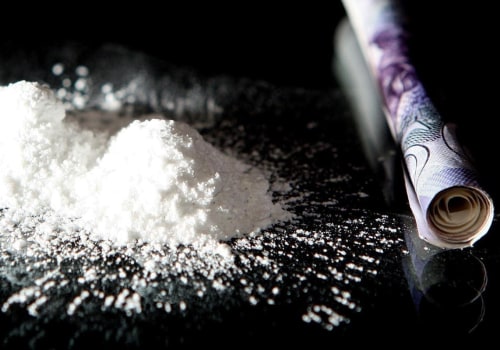Explain how substance abuse treatment works and how family interventions can. Alcohol and Drug Addiction · Drug-free Workplace Helpline · Substance Abuse Alcohol and Drug Addiction Occurs in the Best of Families Describe how alcohol addiction and. Explain how substance abuse treatment works, how family interventions can be a first step to recovery, and how to help children from families affected by alcohol and drug abuse. An addiction doesn't form spontaneously from one day to the next.
Instead, it's the result of a long process of repeated substance abuse that gradually changes the way a person views a drug and the way their body reacts to it. This process is linear and has the same progression for each person, although the duration of each step of that progression can vary greatly depending on the person, the dose and the type of drug being used. Some people will be able to enter the stage of regular use without developing a dependency or addiction. These people will be able to stop using drugs on their own.
The problem with regular use is that the risk of substance abuse increases significantly during this stage. It also increases risky behaviors, such as driving under the influence of alcohol, unexplained violence, and symptoms of depression and anxiety. As defined by the American Society for Addiction Medicine, addiction is a chronic brain disease that affects reward, pleasure, memory, and brain motivation. Like many chronic diseases, it doesn't appear just one day.
Often, there are several circumstances that, over time, cause a person who would otherwise enjoy the occasional drink or avoid substance abuse to become addicted to drugs or alcohol. The process of addiction development in this case tends to occur in a series of stages and, like other chronic diseases, often turns into a cycle of addiction, treatment or abstinence and relapse. The result is an endless cycle that is difficult to break without treating both drug addiction and mental illness. No matter what stage of drug use you're at, it's important to get help right away, especially if you've reached a stage where you can't stop using drugs on your own.
Below is a breakdown of the 4 stages of drug addiction so you can learn to identify the symptoms and signs of addiction or, if you've already progressed, what to do about it. The characteristic of entering Stage 5 is that a person's drug use is no longer recreational or medical, but rather because they become dependent on the substance of their choice. While it's true that some people will be able to engage in regular drug use without developing a dependency, the risk of substance abuse increases significantly during this stage. For example, if drugs are introduced to a person at a time when they are particularly vulnerable, drug use is more likely to continue and become a serious problem.
Because of the intensity of withdrawal symptoms, addicts are often frightened by the idea of not having the drug of their choice, and may become paranoid about running out of it and running out of it. You may need a 12-step program if you have an SUD or qualify for substance abuse problems of any kind. While 12-step programs aren't the right tool for everyone, they tend to help people struggling with substance abuse problems gain new coping skills, feel the support and acceptance of a loving community, transition to sobriety, and encourage long-term recovery from addiction. You may be worried about losing your source of drugs, since substance use has been linked to the idea of escaping negative emotions or situations.
Polysubstance abuse occurs when someone abuses two or more drugs, either together or in frequent rotation. As a comprehensive behavioral health center, Casa Palmera understands that drug and alcohol addiction and trauma are not only physically exhausting, but also cause a mental and spiritual breakdown. When it comes to drug addiction treatment, there are many options available, but it's important to consider a program that offers a holistic approach and that facilities and staff can address co-occurring disorders, such as alcohol abuse and mental illness. However, knowing these stages can help people feel less alone in their fight against substance abuse, which is one of the first steps in seeking help and recovering.
. .






